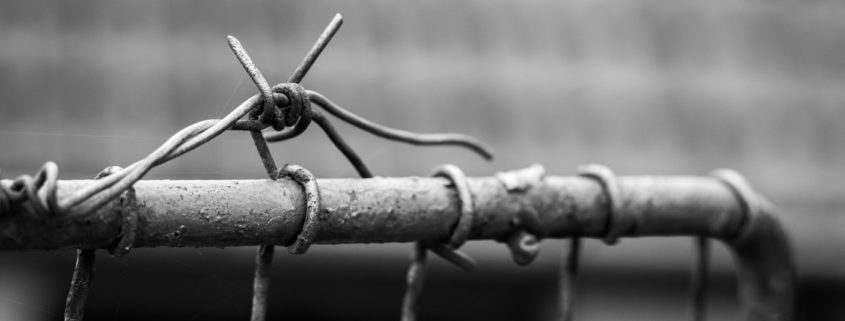Marriage With a Recovering Alcoholic?
If you’ve been married to an alcoholic and are wondering how to fix a marriage with a recovering alcoholic, there are a number of steps you can take to get your relationship back on track. The first step is to treat it like a new relationship. Build your identity, work on sobriety, and change the behaviors in your household. This will require time, patience, communication, and professional help.
In addition to breaking trust and destroying intimacy, alcoholism also creates emotional instability. When your spouse is intoxicated, they can have a hard time remembering what happened or why something was said. They may be unable to control their emotions and act irrationally.
Fixing a marriage with a recovering alcoholic can be a difficult and complex process, but it is possible with patience, commitment, and understanding. Here are some steps that may help:
- Educate yourself about addiction: Learn about addiction, its effects on the brain and behavior, and the challenges that come with recovery. This will help you understand your partner’s struggles and provide empathy and support.
- Communicate openly: Talk openly and honestly with your partner about your concerns, expectations, and needs. Encourage your partner to do the same. Effective communication is crucial for building trust and understanding.
- Attend therapy: Consider attending therapy together or separately. Therapy can help you both address underlying issues that may have contributed to addiction and work through any relationship problems.
- Set boundaries: Set clear boundaries for what you are and are not willing to tolerate in the relationship. This may include things like not tolerating abusive behavior or allowing your partner to drink around you.
- Support their recovery: Encourage your partner to continue their recovery program, whether it is through therapy, support groups, or other means. Attend meetings with them if possible and provide encouragement and praise for their efforts.
- Practice self-care: Take care of yourself physically, mentally, and emotionally. This includes setting aside time for self-care activities like exercise, hobbies, and spending time with friends and family.
Remember, recovering from addiction is a challenging process, and it may take time to rebuild trust and intimacy in the relationship. Be patient, supportive, and communicate openly, and you may be able to rebuild a healthy and fulfilling marriage.
Treat it as a new relationship
If you are dating someone in recovery, you might be wondering if the relationship will survive. Many people who recover from addiction have a difficult time putting their lives back together. Often, a new relationship can become a distraction from their sobriety, and may lead to codependency patterns.
Dating a recovering alcoholic can be an extremely difficult task. There are some things you can do to make sure your relationship stays healthy.
Getting to know your partner and communicating with him or her is a great way to build trust. When you are in recovery, you will want to be very honest about your habits. Be open and honest, and you will be able to work out any issues.
Your partner will likely be struggling with his or her own self-image. They may have other mental health problems or cross-addictions. A good support system is a crucial part of a successful relationship. Consider joining a support group, such as Alcoholics Anonymous.
One of the most important steps is to prioritize your relationship. Take the time to get to know your partner and to let your spouse know that you are willing to do whatever it takes to help them heal.
You need to set healthy boundaries in your relationship. This doesn’t mean that you shouldn’t be supportive, but that you shouldn’t enable the unhealthy behaviors. Some examples of enabling behavior include taking on extra tasks, participating in high-risk situations, or lying to cover up your partner’s use.
In order to fix a marriage with a recovering alcoholic, you will need to find a way to encourage your partner to stay on track. Relapse is a real possibility, but it’s not the end of the world. It’s something that you can overcome.
Practicing the twelve steps, keeping up with your sobriety program, and finding an effective support system are all helpful ways to improve your relationship. Having a healthy perspective is also important. Keep in mind that it’s okay to have fun in recovery, but you should do it drug-free.
In general, recovery is a process, and you need to be patient. A new relationship can be a great source of encouragement, but it can also be a distraction.
Focus on sobriety
When fixing a marriage with a recovering alcoholic, it’s important to keep sobriety at the forefront of the relationship. This can be difficult because addiction can affect all areas of life, including relationships. The person in recovery should take time to heal from their addiction, but they should also learn how to enjoy life without drugs or alcohol.
Rebuilding a marriage after rehab takes time and effort. Trust can take a long time to restore, so it’s important to give your relationship the attention it deserves. It’s also important to find the right partner. Choosing the wrong person could jeopardize your sobriety.
A committed partner can provide encouragement, support, and motivation. But if your partner isn’t in sobriety, he or she may be distracting you from your own efforts. You need to find ways to communicate your needs, priorities, and feelings. If you can’t do this on your own, consider getting professional help.
For example, you may want to attend meetings such as Alcoholics Anonymous. These meetings can offer support and help you develop better communication skills. Joining a support group can also give you a clearer understanding of what you’re dealing with.
Another good idea is to seek help from a couples counselor. Counseling can help you address underlying issues and give you tools to work on your relationship. In addition, attending therapy will improve your communication skills and teach you to recognize and understand your own triggers.
You may also choose to join a 12-step program. Recovery requires commitment and dedication, and if your spouse doesn’t share the same goals, you may need to reevaluate your relationship.
After you’ve taken the necessary steps to get sober and improve your relationships, it’s important to continue working on your sobriety. You should practice a healthy routine and make time for hobbies and activities you enjoyed before your addiction.
When fixing a marriage with a recovering addict, it’s important to remember that you need to build trust. Trying to rebuild trust in a relationship when you are still healing from an addiction can be overwhelming. Be patient, treat the marriage as a new relationship, and be honest about your feelings.
Change family behaviors
A marriage with an addict is no walk in the park. However, there are several good ways to get on the right track. Some of the steps include learning how to handle the emotional roller coaster that is your partner’s addiction, while others involve recognizing and acknowledging your spouse’s needs. These steps can help your relationship survive the ravages of a substance abuser’s addiction and keep you in the game long after the rehab ends.
First, you should know that the biggest challenge in a successful recovery isn’t your sex or your ego. The fact is that you will have to work on your own emotional health in order to effectively support your loved one. So, it’s in your best interests to learn how to deal with your own triggers and behaviors that can trigger an addiction. You may also want to look into a family or couples therapy session in order to address your own issues as well as those of your partner.
Second, you should try to establish a firm line of communication with your addict. Not only should you avoid lying and manipulating your partner, but you should also be sure to let him or her know exactly what you will and won’t tolerate. In fact, you should make a point of setting up a schedule that you and your partner can adhere to during the aforementioned grueling time in their lives.
Finally, you should also do a bit of research to find out what you can about the recovery process. While you are at it, check out some open meetings. Many treatment programs will have a large focus on involving your partner in the process. This will not only boost the chances of success but it can be the spark of motivation your loved one needs to overcome his or her demons.
The best way to do this is to take note of the key elements of your partner’s life and then use these as a guidepost to your own. By recognizing and acknowledging your own emotions and reactions to your spouse’s behavior, you can successfully change your relationship for the better.



